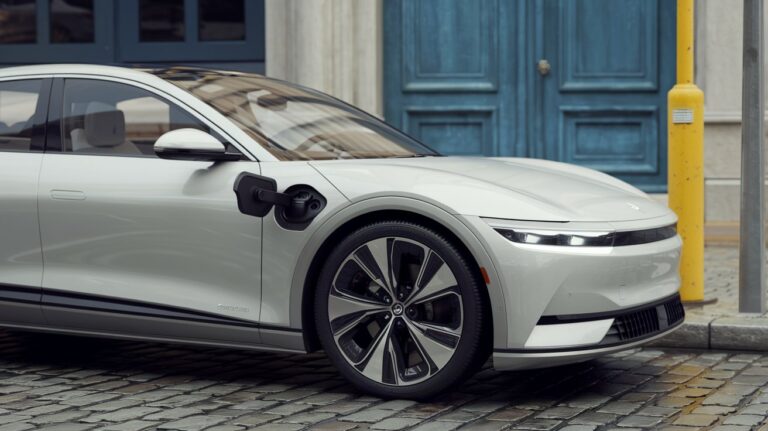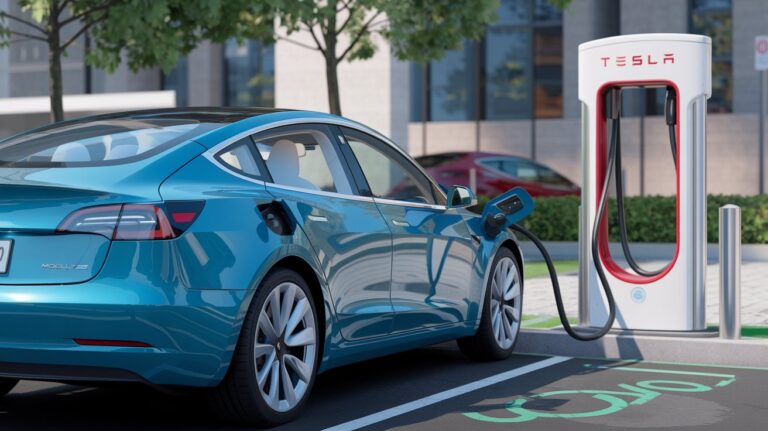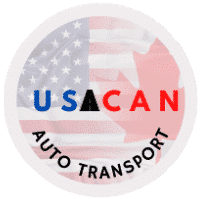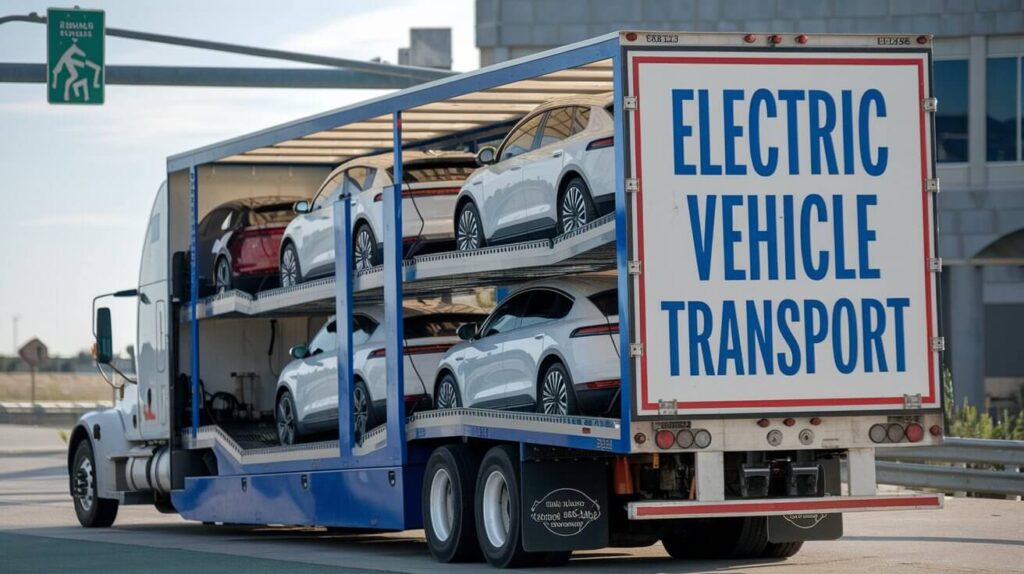As electric vehicles (EVs) continue to rise in popularity across North America, they are bringing significant changes to industries that support traditional vehicles, including the cross-border auto transport industry.
The growing demand for EVs is reshaping how transport companies operate, from new logistical challenges to updated regulations and infrastructure needs. At US Canada Auto Transport, we understand these evolving changes and are here to help our clients navigate this new landscape.
Let’s discuss the many ways EVs are changing the cross-border auto transport industry, providing valuable insights into how this shift impacts logistics, cost structures, and long-term trends.
The Growing Popularity of EVs and Its Impact on Auto Transport
As consumers and governments prioritize sustainability, the adoption of electric vehicles is skyrocketing. This trend is reshaping the auto transport landscape, especially for companies like US Canada Auto Transport, who specialize in cross-border transportation.
- Government Incentives and Mandates: Both the US and Canada have introduced various incentives, including tax credits, grants, and rebates, to encourage consumers to buy electric vehicles. These policies are creating a surge in demand for transporting EVs across borders.
- Increased EV Production: Car manufacturers are ramping up EV production, which means auto transport companies need to adjust their operations to accommodate an increasing number of electric cars crossing borders.
- Growing Consumer Demand: As consumers prioritize sustainability and lower fuel costs, many are turning to EVs, leading to more frequent cross-border vehicle deliveries.
As EV ownership increases, the demand for cross-border transport services like US Canada Auto Transport will only continue to grow. We’re already seeing how these factors influence the industry.
Key Challenges in Cross-Border EV Transport

While the rise of EVs offers opportunities for growth, it also presents unique challenges that the auto transport industry must address to keep pace with demand.
- Battery Safety and Handling: Unlike traditional vehicles, EVs require special care, particularly when it comes to their large, sensitive lithium-ion batteries. These batteries must be handled according to strict safety guidelines to avoid damage or hazards during transport.
- Charging Infrastructure: Charging stations in the US and Canada are increasing, but there are still significant gaps in rural areas and along transport routes. Auto transport companies need to ensure vehicles are properly charged before and after transport.
- Regulatory Compliance: Both countries have different regulations concerning the cross-border transport of electric vehicles, particularly when it comes to emission standards and battery specifications. Compliance with these rules is crucial to ensure smooth transportation.
- Weight Considerations: EVs tend to be heavier than traditional vehicles due to their batteries, which can affect the type of transport vehicle used and the associated cost. This extra weight also adds additional logistical challenges when transporting multiple vehicles at once.
At US Canada Auto Transport, we are well-versed in navigating these complexities, ensuring that electric vehicles are safely and efficiently transported across the US-Canada border.
Adaptations in Cross-Border Auto Transport Operations
To keep up with the evolving needs of the market, cross-border auto transport companies must make significant operational changes. These adjustments not only improve efficiency but also ensure the safety and reliability of electric vehicle transport.
- EV-Specific Equipment: Specialized transport equipment, such as electric vehicle-compatible car carriers and secure battery-handling systems, are now essential for safely moving EVs.
- Staff Training: Auto transport companies are investing in specialized training for their staff to handle electric vehicles and their unique components, especially the batteries.
- Eco-Friendly Transport Options: As sustainability becomes a bigger priority, many auto transport companies, including US Canada Auto Transport, are exploring more eco-friendly transportation methods, including hybrid or fully electric transport vehicles.
These operational changes help ensure that companies are ready to handle the growing demand for EV transport and can deliver high-quality service to customers.
The Role of Technology in EV Transport

Technology plays a crucial role in shaping the future of cross-border auto transport, especially with the rise of electric vehicles. Modern advancements are improving the speed, safety, and efficiency of transporting EVs between the US and Canada.
- Vehicle Tracking Systems: Advanced GPS systems now allow transport companies to monitor the location and status of EVs in real time, ensuring better coordination and communication.
- Smart Logistics Solutions: Transport companies are using sophisticated software to optimize routes for electric vehicles, reducing transport times and ensuring the vehicles are charged as necessary.
- Battery Monitoring: Special sensors can now track the condition of EV batteries during transport, ensuring they remain in good condition throughout the journey.
At US Canada Auto Transport, we use cutting-edge technology to ensure the smooth, safe, and efficient transport of electric vehicles across the border.
Cross-Border Regulations for EVs
As the popularity of EVs increases, new cross-border regulations are being implemented to address environmental concerns and technological differences between countries.
- Emission Standards: Both Canada and the US are tightening their emissions regulations, and electric vehicles are subject to specific rules when crossing the border. These rules vary based on the size and type of vehicle, making it crucial for transport companies to stay informed.
- Battery Disposal and Recycling: With new regulations focused on battery disposal and recycling, auto transport companies must ensure that any damaged or expired EV batteries are handled according to environmental laws in both countries.
- Tax and Import Duties: EVs may qualify for different import taxes and duties compared to traditional vehicles. Cross-border transport companies need to navigate these complex regulations to avoid delays and unexpected costs for clients.
Navigating these regulations can be challenging, but US Canada Auto Transport has the expertise to ensure full compliance when transporting electric vehicles.
How US Canada Auto Transport is Leading the Shift
At US Canada Auto Transport, we have adapted to the rise of electric vehicles by embracing new technologies and practices designed specifically for the safe and efficient transport of EVs.
- Specialized EV Services: We offer tailored services for electric vehicles, ensuring that your EV is handled with care and transported using the latest equipment.
- Experienced Team: Our team is well-trained in the unique requirements of EVs, from safe battery handling to navigating the regulatory landscape.
- Cross-Border Expertise: With years of experience in cross-border transport, we stay up-to-date with the latest EV-related regulations, ensuring your vehicle is delivered smoothly across the US-Canada border.
As the auto transport industry evolves, US Canada Auto Transport is committed to staying at the forefront, offering top-tier services for EV owners.
The Future of Cross-Border Auto Transport and EVs
The rise of electric vehicles is only the beginning of a broader shift in the auto industry. Over the next decade, we expect even more changes in how vehicles are manufactured, transported, and sold.
- Autonomous Electric Vehicles: As self-driving electric vehicles become more common, the auto transport industry will need to adapt to transport not only electric but also autonomous vehicles.
- Increased Demand for Eco-Friendly Transport: As consumers become more environmentally conscious, there will be a growing demand for green transport solutions. Electric transport trucks and eco-friendly logistics will likely play a key role.
- Integration of Renewable Energy: The use of renewable energy, such as solar power, for vehicle charging and transport services will likely become more prominent in the future.
By staying ahead of these trends, US Canada Auto Transport is poised to lead the way in cross-border EV transportation.
Transport Your EV with US Canada Auto Transport
If you’re ready to transport your electric vehicle across the US-Canada border, trust the experts at US Canada Auto Transport. With our specialized EV services, regulatory expertise, and commitment to safe, efficient transport, we make the process seamless and stress-free. Contact us today to get started on your cross-border EV transport journey!
Takeaway
The shift to electric vehicles is transforming the cross-border auto transport industry in significant ways. From logistical challenges to new regulations, companies must adapt to meet the growing demand for EV transport.
At US Canada Auto Transport, we are leading the charge by providing specialized services, staying compliant with evolving regulations, and embracing the latest technology. As the auto industry continues to evolve, we’re committed to offering the best possible transport solutions for EV owners.
This article not only keeps you informed of the changes happening in the auto transport industry but also demonstrates how US Canada Auto Transport is prepared to meet your electric vehicle transport needs. Reach out today to experience top-notch cross-border service.

